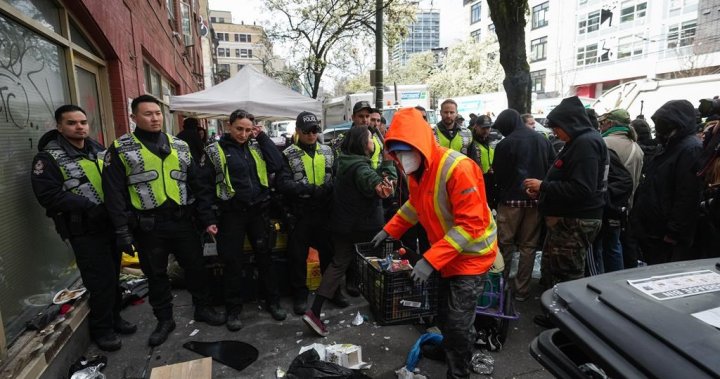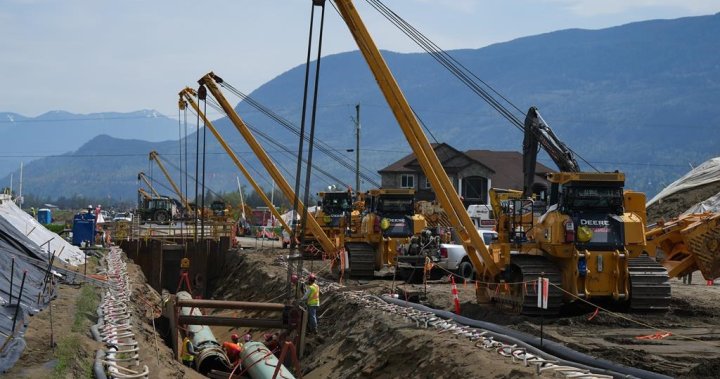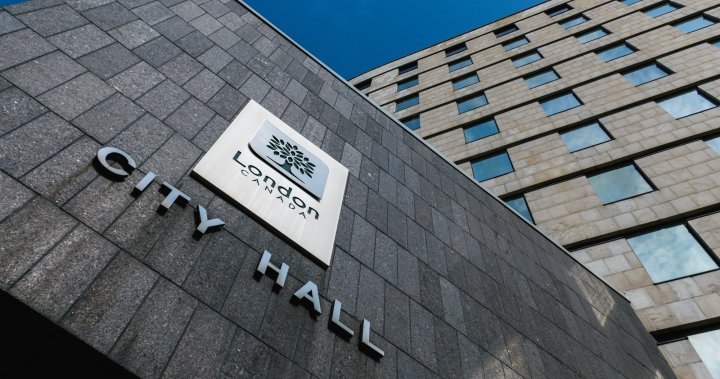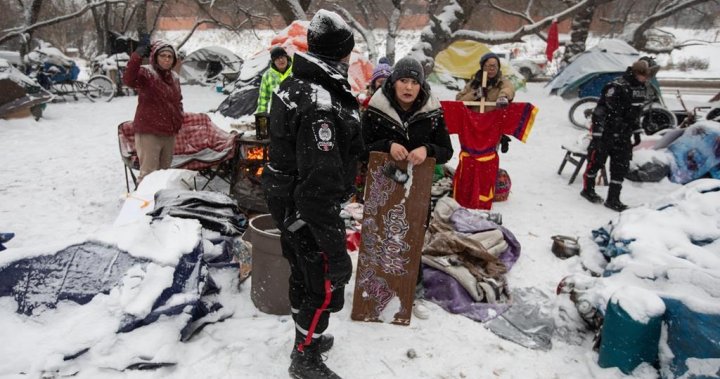British Columbia’s premier is rejecting a call from Canada’s federal housing advocate to stop clearing homeless encampments and to instead supply them with necessities such as food, water, and sanitation.
Housing advocate Marie-Josée Houle released a report Tuesday that argues unhoused people have a fundamental right to live in encampments if they can’t find alternatives, and that tearing them down is a violation of human rights.
The report states that while encampments may not be safe, they exist because of a systemic failure to provide housing.
“These are very punitive approaches to issues such as poverty. People aren’t there because it’s an adventure, people are there because of issues of lack of affordability in housing. Some people have been renovicted from their homes and they are in places like Vancouver where they can’t even find somewhere else,” Houle told Global News in an interview.
“This is an issue of life and death for a lot of people. We need to make sure people living in encampments have access to the basic necessities they need to survive and live in dignity. The issue of encampments is one that is a human rights crisis.”
Speaking at an unrelated event on Tuesday, B.C. Premier David Eby said he’d had a “very detailed” conversation with the advocate, but that he disagreed that encampments can be left in place.
Eby cited the example of a former client of his who burned to death trying to stay warm in a tent and a survey by the Downtown Eastside Womens’ Centre which found 100 per cent of women sheltering in the former Hastings Street encampment had been sexually assaulted.
“I just profoundly disagree with any suggestion that encampments are acceptable, decent, reasonable places for people to live because I have seen, and British Columbians have seen the violence, the fires, the brutality that can arise in that kind of environment,” he said.
“At the same time, we know people are desperate, they need to set up a tent. So any kind of simplistic analysis around this is just that. It is a very complex and challenging issue — we have had experiences of decamping people directly into a motel where we had to ultimately close the motel because it was unsafe.”
Get the latest National news.
Sent to your email, every day.
Houle’s report calls the expansion of homeless encampments a national crisis and calls for a coordinated response between federal, provincial, municipal and Indigenous governments to tackle it.
It says governments have failed to meet the right to housing which Canada officially recognized in 2019. Houle was appointed to monitor the country’s progress in upholding that right.
She said urgent action is necessary to protect the rights and dignity of Canada’s unhoused population, part of which involves dedicating significant new resources to meeting their needs where they are until housing can be brought online.
“We need to see the end of forced evictions because they never work, this top-down approach has to stop, and what will only work is actually finding solutions with meaningful engagement with people with lived experience with homelessness and people living in encampments,” she said.
“They are the ones who have the unique experience and unique insight of what the issues are, what the barriers are, and why they are choosing to live in encampments which is a terrible choice in a terrible menu of other terrible choices.”
Houle said homeless people reject shelters for a multitude of reasons, including trauma associated with social services, institutions and people in uniform.
In the absence of affordable housing, she argued that encampments can provide a sense of community, security and consistency.
The report calls on the federal government to establish a national plan to respond to the encampment crisis by Aug. 31, and on provinces to offer health and mental health care, harm reduction services and a safe supply of drugs to people who use them.
It also calls on cities to provide basic amenities, including power, clean water, heat and bathrooms.
Eby said the province has learned from its unique experiences and now seeks to move unhoused people into “dignified shelter” with privacy and meals while giving officials time to get to know them and place them in appropriate housing.
“It’s not something we came to overnight, it is a long process. I hope the housing advocate works with us,” he said.
He said, however, that he does agree with Houle’s call for all levels of government to work together on a new national encampment response plan.
-With files from the Canadian Press
© 2024 Global News, a division of Corus Entertainment Inc.




